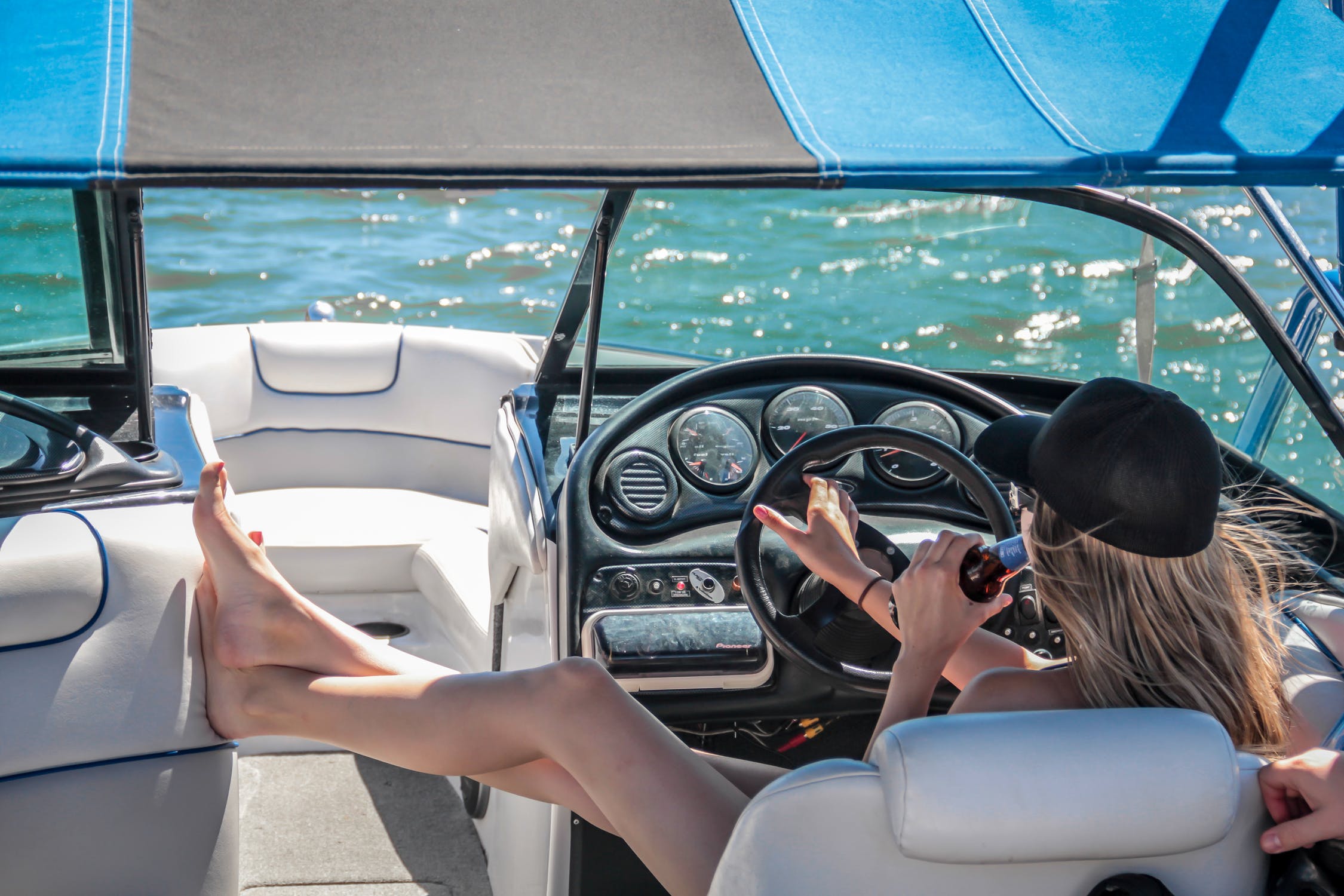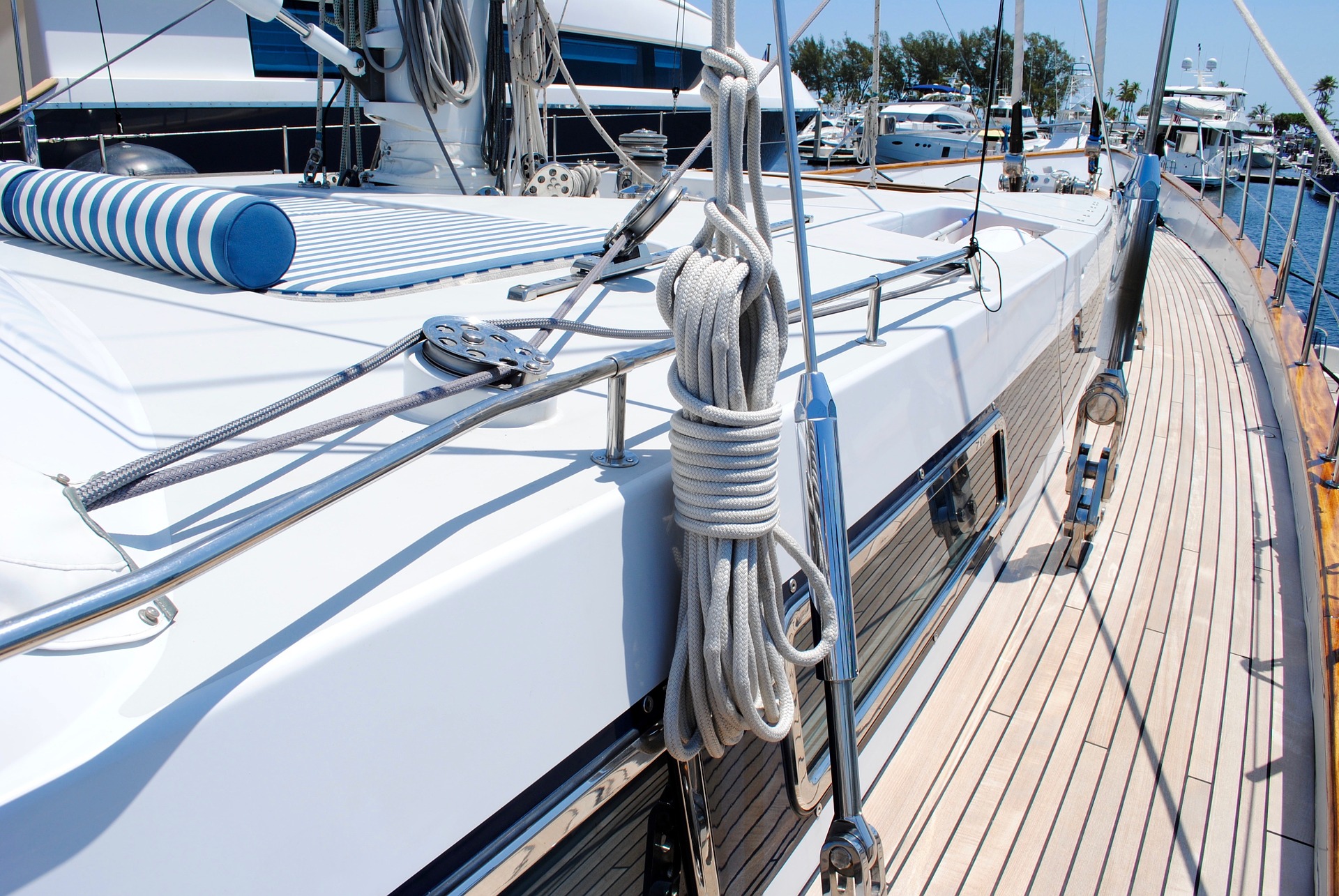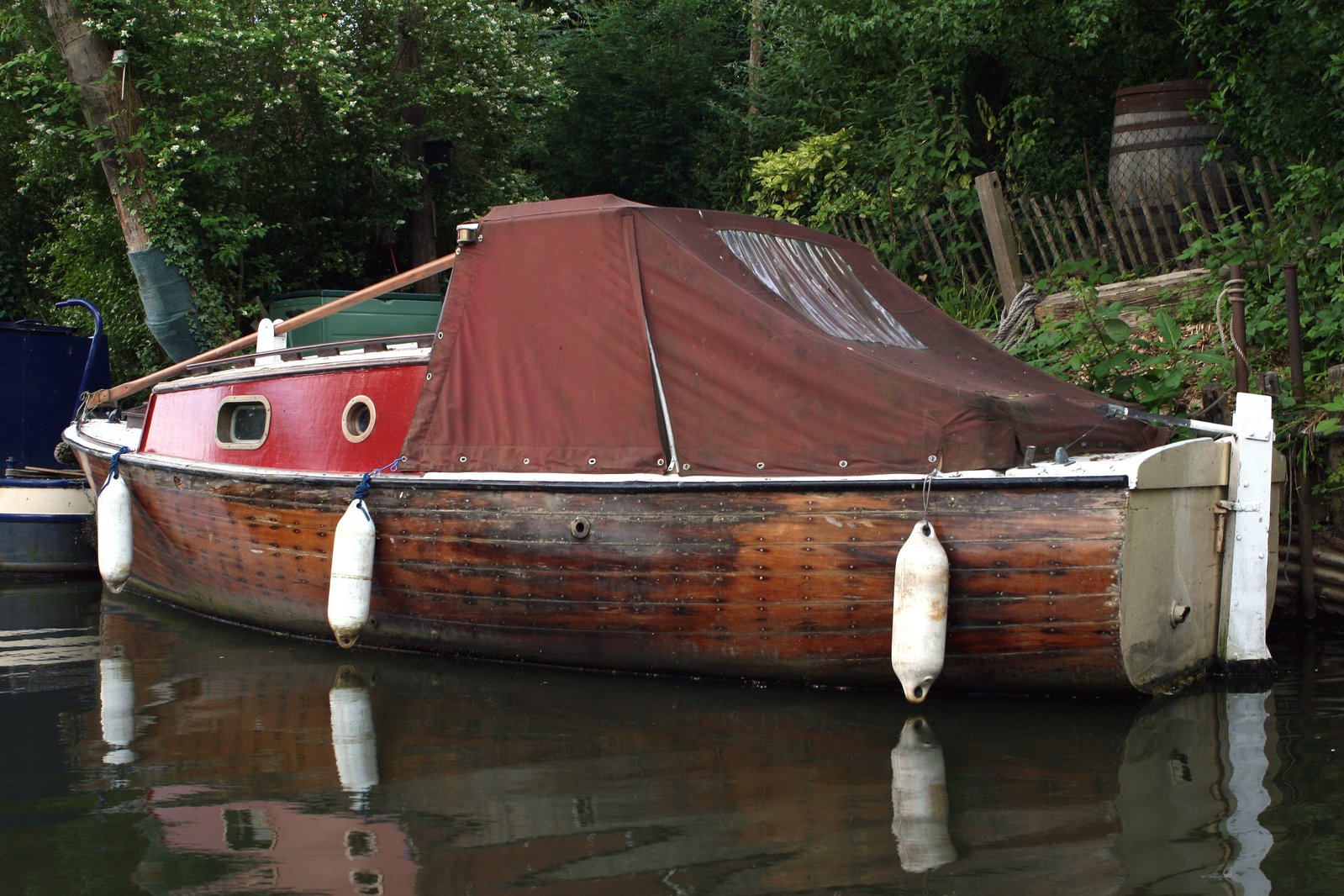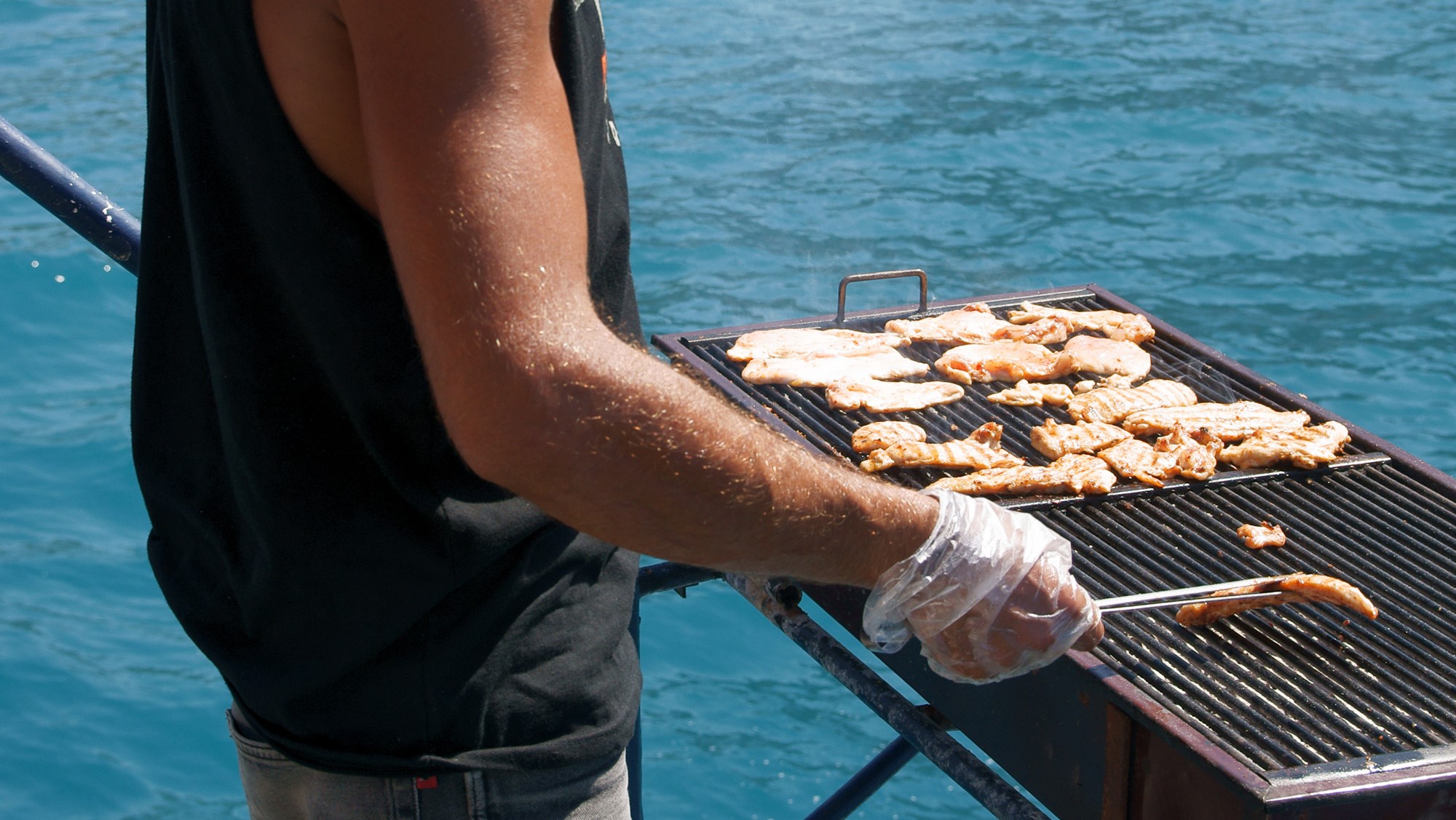
Cooking on a boat may seem easy-peasy but there are so many aspects that you need to consider before you start grilling or cooking in your boat’s galley.
This article will discuss all the important tips and safety measurements when cooking on a boat. What equipment do you need and what meals are recommended for your sailing trips?
IS IT LEGAL TO COOK ON A BOAT?
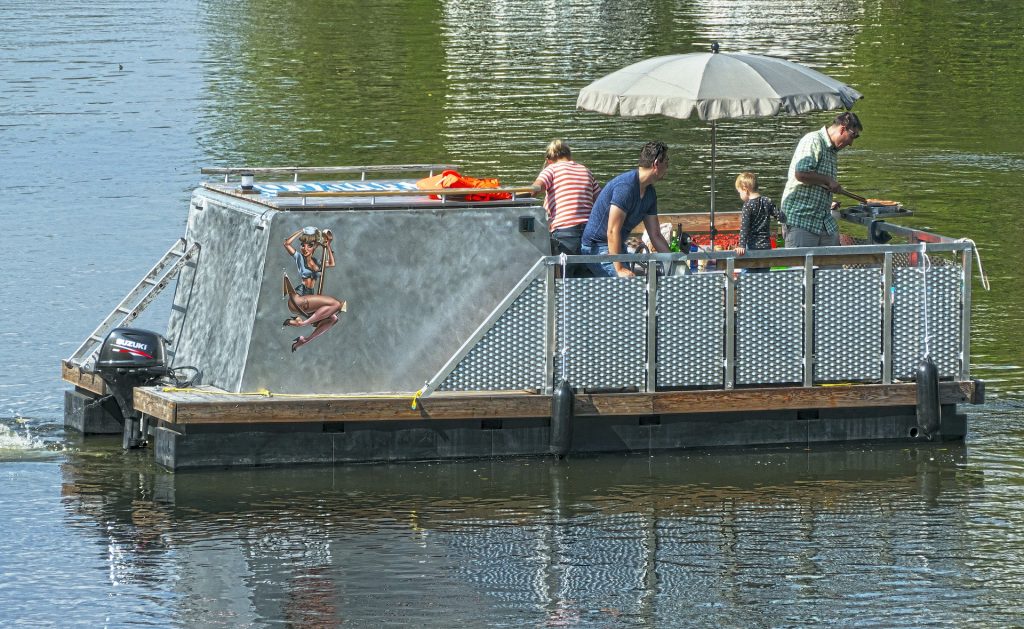
First things first, is cooking on a boat legal? The answer is a big yes. You can cook or grill freely on a boat as long as you have the right equipment, ingredients, and emergency supplies.
Remember that fire is involved in this activity, so make sure that you’re prepared in case of any emergencies.
WHERE DO YOU COOK ON A BOAT?
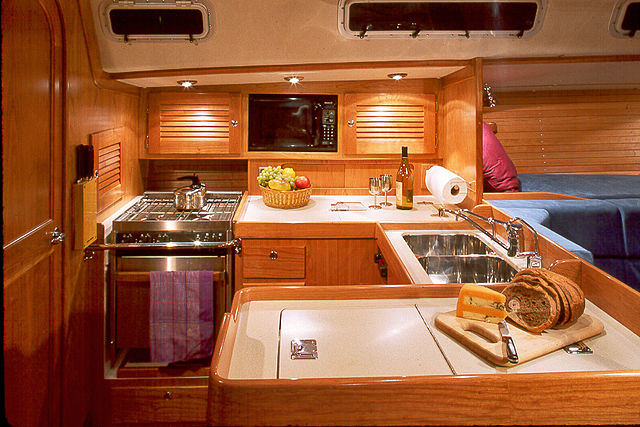
Usually, boats have galleys where food is cooked and prepared. It’s similar to your kitchens at home but a smaller version. A galley has a sink, counters, stove, microwave, and refrigerator where you can easily prepare meals for your sailing trip.
But what if you own a small boat and don’t have a galley? Most trailerable boats (boats that have a beam width of 8 feet six inches wide or less) don’t have galleys but no worries because you can still cook onboard.
A make-shift galley is a solution to your problem. Of course, before hopping on board, you should have planned your meals and what equipment you’re using. For instance, you can bring a portable stove, a griller, a coffee maker, or a microwave and set it on the available space on your boat.
Use all the spaces and organize your appliances for your make-shift galley and you’re good to go!
WHAT EQUIPMENT DO YOU NEED FOR COOKING/GRILLING?
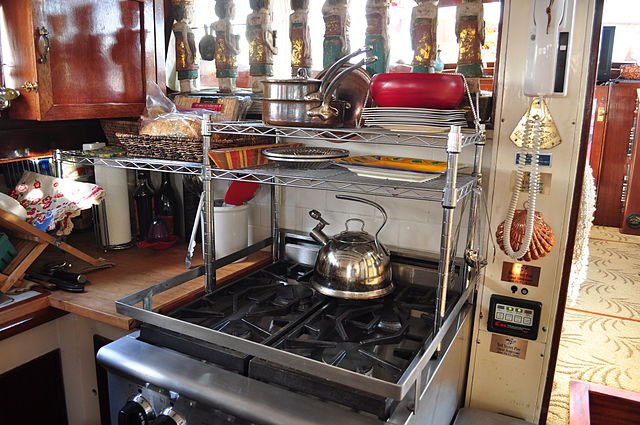
Here, we listed all the equipment that you can use for cooking and grilling on your boat but take note, you don’t need them all. Just pick the equipment that you’ll be using for preparing your meals.
- Portable stove
- Portable griller
- Grill basket
- Tongs and spatula
- Pan and pots
- Portable fridge or cooler
- Grill smoker box
- Propane gas
- Knives
- Electric kettle
- Microwave
- Coffee maker
SHOULD YOU USE A CHARCOAL GRILL ON A BOAT?
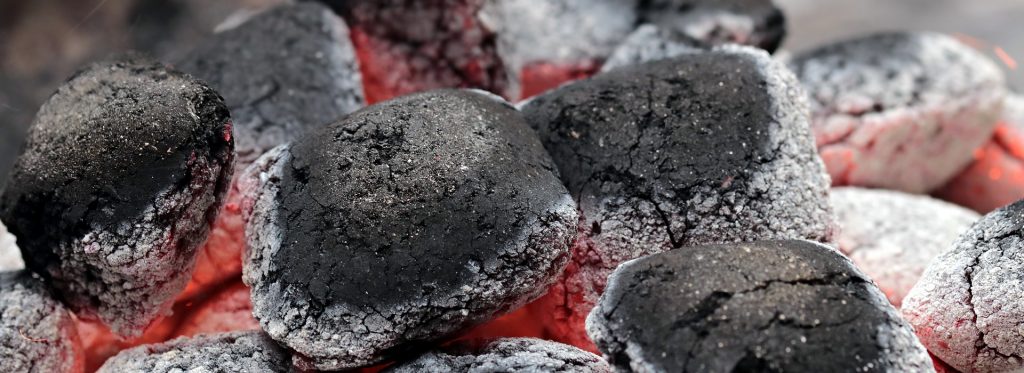
Another important factor that you need to remember is that using charcoal for grilling is great. However, it is not recommended for boat grilling. Why?
Since charcoal should be kept dry all the time (which is difficult since you’ll be surrounded by water all day) storing them can be quite tough. Another downside is its ashes – sailing on a boat can be very windy so expect a lot of ashes flying around you and your food.
WHAT GRILLS ARE SUITABLE ON A BOAT?
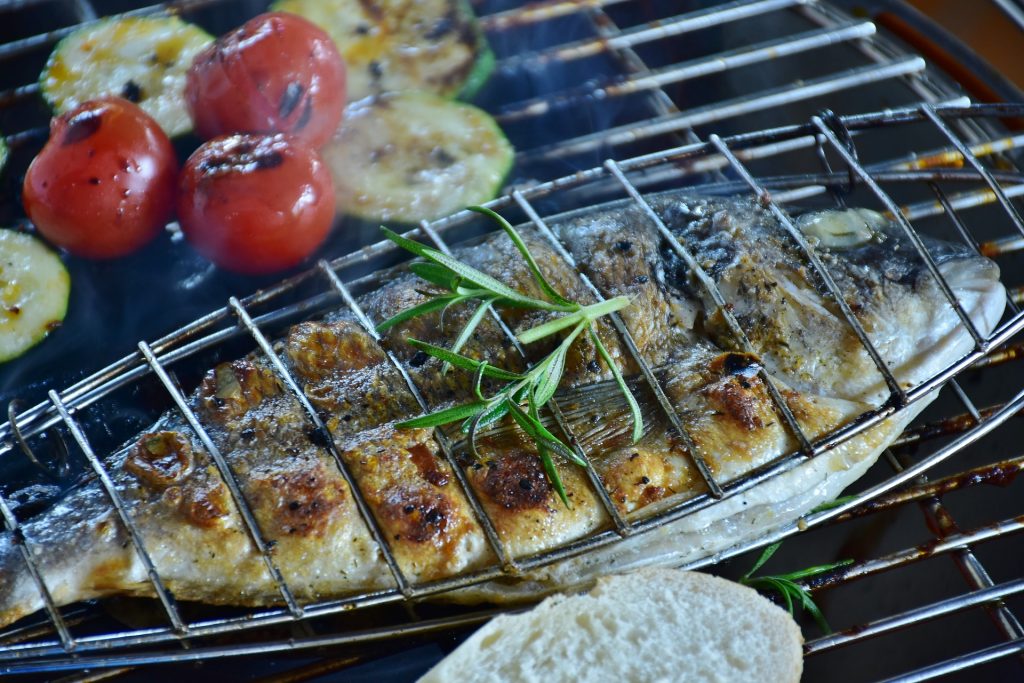
Considering that winds and waves are unpredictable when sailing, boat grills are usually mounted for safety purposes. It can be mounted on the side or on the stern of your boat, there are two types of grills that are suitable for boat grilling, they are:
Propane Grills
Considered one of the best boat-friendly grills, the propane grills will make your grilling a lot easier.
Since propane gas burns hotter (2500 BTUs) than any natural gas (1000 BTUs), most boaters choose this option. Propane is also environmental friendly because it has no lead and has low GHG emissions.
Electric Grills
If your boat has electronic ports then, an electric grill is a perfect option. Besides the fact that they are a lot cheaper, electric grills are user-friendly and can help you cook meals easier and faster.
TIPS FOR COOKING ON A BOAT
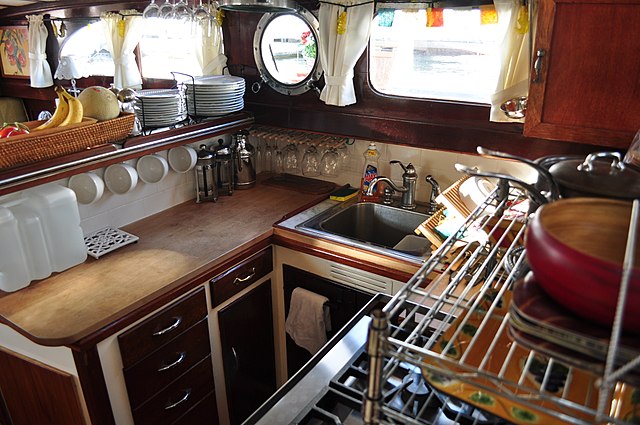
Cooking on a boat is different and harder compared to cooking at home. Not to mention the limited space, narrow counters, small storages, limited water, and power supplies.
Imagine the struggle that you need to deal with, crazy right? But no worries because we got you covered. We listed 6 important tips that you should remember to avoid any inconvenience:
Tip #1 Prepare ahead of time
Some of you might think that preparation is not needed here. It’s just cooking, right? But that’s actually the opposite. As I mentioned earlier, cooking on a boat is difficult compared to cooking at home.
Everything should be organized and packed properly. It’s better if you’ll have a checklist of what equipment you’ll bring so you won’t forget important items. Remember that space is limited on the boat so pack what you need and leave what’s nonessential.
Tip #2 List and prepare your meal
After listing all the equipment that you need, it’s time to write down and prepare your meals.
What are the ingredients that you need to bring? Write them down so you won’t leave anything behind. After that, you can start chopping ingredients such as; vegetables, meats, and fruits at home and pack them in separate containers.
This process will not only help you get organized but will also save your time and effort when onboard.
Tip #3 Space management
Since space is limited on a boat, you need to decide what are the essential equipment and ingredients that you’ll bring. Having a spare is great but you can bring one pot, one pan, cups, silverware, and plates for each person on board.
Pack them properly to save space and keep everything organized.
Tip #4 Conserve water
Of course, fresh water is limited when you’re onboard. Make sure to bring enough drinking water for everyone to prevent dehydration.
For you to conserve water, you can use salt water when cleaning dirty plates, then wipe it with a clean towel or tissue. But don’t dump the dirty water back into the ocean, wait until you can dispose of it properly on land.
Tip #5 Pre-cook your meals
Considering that you already know what meals you’ll be cooking, you can pre-cook your meals at home to reduce your cooking tasks.
For example, you can cook ingredients like; pasta, chicken, meat, potato, etc. to make sure that they’re cooked accurately. This way, you can cook on your boat galley smoothly and enjoy your sailing trip.
Tip #6 Pack your emergency supplies
Of course, emergency supplies are a must-have in every boat. But since you’ll be cooking and fire is involved, you need to be vigilant with your surroundings.
Pack medicines and ointments for burns and scalds, since you’re away from the land having a first aid kit can be a huge help when accidents happen onboard.
You can also teach everyone on board to use the VHF radio to call for help in case of any emergencies.
FIRE SAFETY ON BOATS
According to the United States Coast Guard’s statistics, there are 170 accidents caused by fire/explosion (fuel) in 2016. Fortunately, those numbers decreased over time, and in 2019 fire/explosion accidents caused by fuel dropped to 139.
And to prevent this kind of accident, United StatesCoast Guard (USCG) requires boats to have at least one B-1 marine fire extinguisher onboard. There are three types of fire extinguishers:
- Class A: used for solid combustibles like wood or paper.
- Class B: used for flammable liquid fuel like gasoline (do not use water).
- Class C: used for an electrical fire (do not use water).
Before purchasing any fire extinguisher, make sure that they are coast guard approved and store them properly. You can place your fire extinguisher at or near the steering station, galley, or engine room.
CONCLUSION
A sailing trip is not complete without good food. Cooking is a big task, especially when you’re on board. On the other hand, as long as you’re ready and have organized everything you need, then there’s no need to worry.
If you have cooking tips to share, just comment below.

